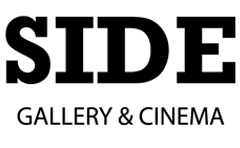An exhibition exploring the complexities of the postcolonial city.
In 1882, the explorer Stanley looked down on what would become the city of Kinshasa: "My mind, when I survey the view, always reverts to the possibilities of the future. It is like looking at the fair face of a promising child; we find nought in it but innocence, and we fondly imagine that we see the germs of a future great genius..."
The treaties Stanley negotiated and the trading posts he established for Leopold II enabled the Belgian king's subsequent cruel plunder of the private venture he named as The Congo Free State. The colonial ambitions of Congo's emerging cities saw Central Africa's first skyscraper in 1946.
1977 saw the post-colonial Mobutu regime complete one, even higher, even more imposing, next to it. Today the Congolese government promises new urban infrastructures to inscribe Congo in yet another ‘revolution of modernity’. Against these ambitions and projections of power, the vital infrastructure of Congo’s cities is falling apart in the meantime.
In this rich picturing of the complexities that shape daily lives in Kinshasa and Lubumbashi, Sammy Baloji and anthropologist Filip De Boeck are focusing on the 'urban now': a moment that is suspended between lingering precolonial references, the broken dreams of a colonial past, and the not yet realised promises of neoliberal futures. They document a world that arises out of all three layers, beyond planning and regulation, made necessary by the failure of earlier models.
They reveal a cultural and socio-economic landscape of 'holes', creatively and necessarily stitched together - sutured - in a makeshift fashioning of the interconnecting opportunities through which people struggle to survive. They show the new and the gated dreams and architectures of an elite, protecting themselves from a chaos in which it is deeply complicit.


Autograph is a space to see things differently. Since 1988, we have championed photography that explores issues of race, identity, representation, human rights and social justice, sharing how photographs reflect lived experiences and shape our understanding of ourselves and others.